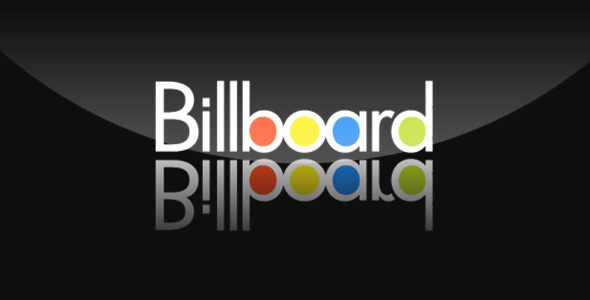
by Mike Errico | Feb 7, 2016 | Teaching, Text Journalism
Thanks to Billboard for adding me to their piece, Album of 100 Songs, All 30 Seconds Long, Holds Digital Music and Modern Life Over the Coals. This summer, New York University songwriting professor Mike Errico wondered, darkly: “Spotify, the clear leader in the streaming space, pays after 30 seconds, so an honest question is… why write beyond that?” Mark Christopher Lee got the joke, and took it very seriously indeed. Six days ago he uploaded 100×30, a record of 100 songs each a hair over 30 seconds long, to SoundCloud. No industry participant is spared. A short list of 100×30’s targets include: Spotify, YouTube, Shazam, Deezer, the Brit Awards, the BBC, MP3s, SoundCloud, sync deals, The Orchard, Sony Music, NME, Starbucks, Noel Gallagher, Steve Jobs and MacBooks. Speaking to Errico via The Independent, Lee says: “I’ve been trying to have a meaningful debate about how we value music, and how we pay for it.” Mostly, however, his focus seems to be on how we don’t pay for it. Read on at Billboard Some Billboard – related pieces include: “Touring Can’t Save Musicians in the Age of Spotify” (New York Times) Appearance on CNN to discuss “Musicians Struggling Through the Streaming Age” What the Blues Can Teach You About Life, Art, and Everything In-Between (The Observer) “Space Oddity” and the Power of the Story Song (Cuepoint) Is the Three-Minute Pop Song Over? (The Independent UK) Hi. I’m Your Songwriting Professor. (The Observer)...
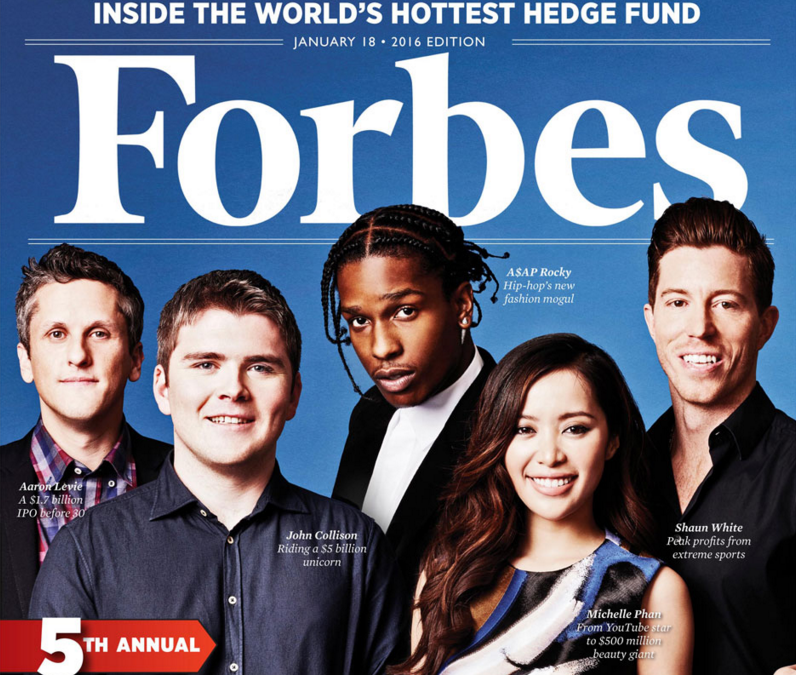
by Mike Errico | Feb 7, 2016 | Teaching, Text Journalism
Forbes, the business magazine, has posted The Uneasy Future Of Format Innovation In Music Streaming. It has a good riff on the thirty-second song pieces I did, as well as other prognostications on how technology will influence artists and art. Only a few weeks before MIDiA released its report on variable media programming, musician Mark Christopher Lee released the album 100 x 30, which consists of 100 songs each only 30 to 39 seconds long. The album was a response to a June 2015 op-ed in The Independent by Mike Errico, adjunct professor of songwriting at New York University, who argued that Spotify’s royalty payout for tracks after just 30 seconds of streaming provides a financial incentive for artists to post shorter songs on the service. More than simply profitability, however, Lee aimed simply to propagate Errico’s statement on how the impact of streaming on the music industry can potentially lead to an overbearing hunger for creative efficiency. In fact, a quick glance at 100 x 30’s track titles, ranging from “How Many Friends Have You Bought in Your Unsigned Band” to “EMI (Eat My Industry),” confirms that the album is a harshly calculated stab at the increasing digitization of the music industry as a whole. Pieces related to the Forbes article include: “Touring Can’t Save Musicians in the Age of Spotify” (New York Times) Appearance on CNN to discuss “Musicians Struggling Through the Streaming Age” Is the Three-Minute Pop Song Over? (The Independent...
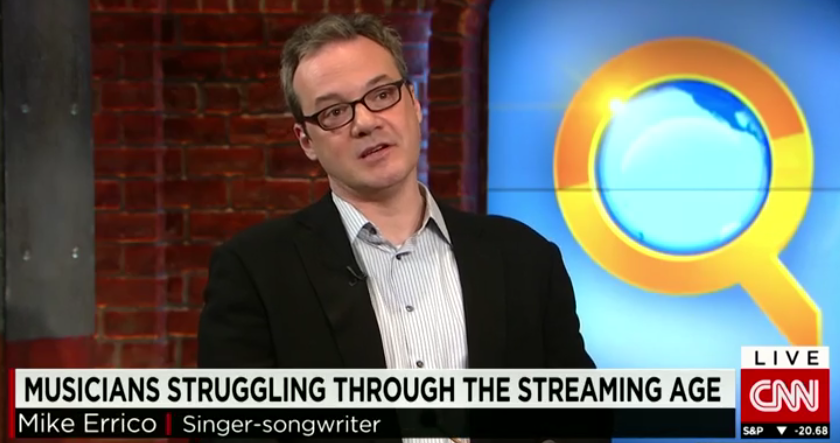
by Mike Errico | Feb 1, 2016 | So Good, Text Journalism
I went on CNN to talk about my piece in the New York Times, “Touring Can’t Save Artists in the Age of Spotify.” I’m wearing the suit I got married in. Here’s a segment on CNN’s site. Here’s a piece of the Times article: “Touring is, of course, the most ancient business model available to artists — and in many ways, it remains a vital part of their livelihood, even while the surrounding industry undergoes major upheaval to accommodate the new paradigm of streaming music. In response to the shift in revenue sources, standard recording contracts now intrude into the numerous nonrecording aspects of an artist’s career. But the advice given to the creative generators of this multibillion dollar industry is still one that would be recognizable to a medieval troubadour: Go on tour. And yet from a business standpoint, it’s hard to find a model more unsustainable than one that relies on a single human body. This is why we have vice presidents, relief pitchers and sixth men. When applied to music’s seemingly limitless streaming future, the only scarce resource left is the artists themselves. You would think the industry would protect such an important piece of its business model, but in fact, the opposite is true.” Read on at the New York...
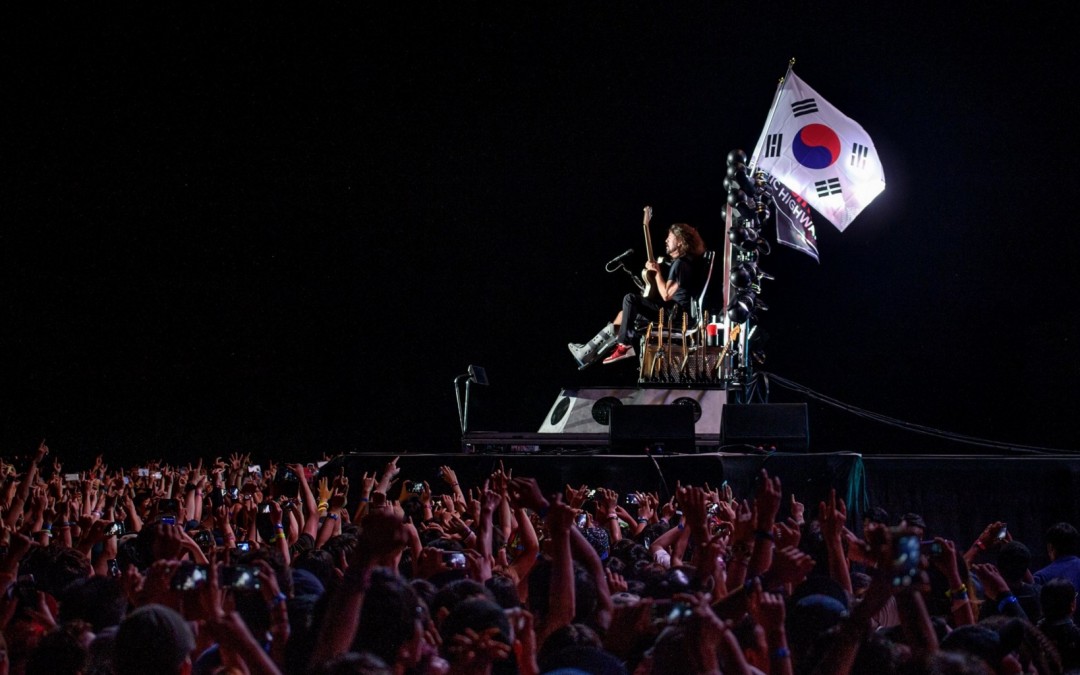
by Mike Errico | Jan 26, 2016 | Text Journalism, Uncategorized
Touring is, of course, the most ancient business model available to artists — and in many ways, it remains a vital part of their livelihood, even while the surrounding industry undergoes major upheaval to accommodate the new paradigm of streaming music. In response to the shift in revenue sources, standard recording contracts now intrude into the numerous nonrecording aspects of an artist’s career. But the advice given to the creative generators of this multibillion dollar industry is still one that would be recognizable to a medieval troubadour: Go on tour. And yet from a business standpoint, it’s hard to find a model more unsustainable than one that relies on a single human body. This is why we have vice presidents, relief pitchers and sixth men. When applied to music’s seemingly limitless streaming future, the only scarce resource left is the artists themselves. You would think the industry would protect such an important piece of its business model, but in fact, the opposite is true. With snow, and now ice, covering a large swath of the country, my latest piece in the New York Times discusses the dangers facing touring musicians, particularly in the coming months. It stresses the importance of keeping writers’ rights alive, and seeks to undercut the tired refrain that touring is how musicians should make money in the “new paradigm.” This is the “gig economy” as seen by those who popularized the term. “Touring Can’t Save Musicians in the Age of Spotify“ http://www.nytimes.com/2016/01/25/magazine/touring-cant-save-musicians-in-the-age-of-spotify.html?_r=0 Drive safe out there, friends. M (Getty...
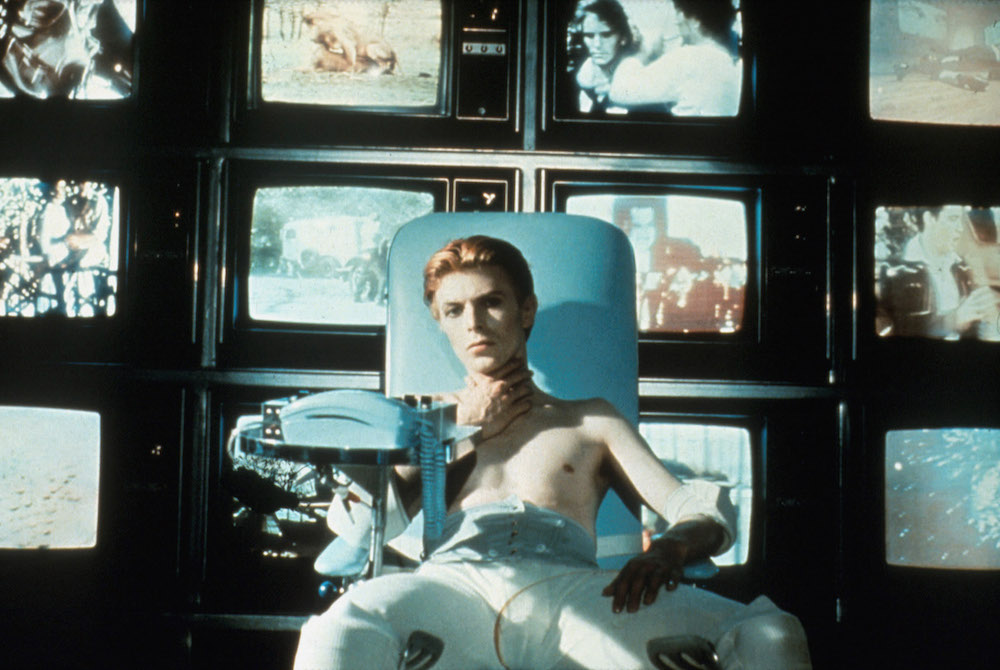
by Mike Errico | Jan 20, 2016 | Teaching, Text Journalism
Exploring the brilliant techniques Bowie used to populate his Major Tom saga In my songwriting classes, I assign a week where the students are to write a “story song” — a piece of music with a character that develops and takes us on a journey of some sort. The students generally look at me cross-eyed. Once, upon hearing the assignment, a student asked, “You mean, like…Meatloaf?” To which another asked, “Who’s Meatloaf?” A third cleared things up by offering, “No, he means kinda like ‘Stan,’” referring to the Eminem song from their distant collective childhoods. Yes. Like “Stan.” At the moment, songs — and I’m generalizing, though popular charts do bear this out — tend to hone in on a particular moment and expand upon a fixed sensation. For instance, Adele’s “Hello,” the most popular song at the time of this writing, pushes out from a personal phone call to reveal her anguish over a past relationship. Songs with a wider lens use the first person plural (“we”) and are addressed directly to audience members in hopes of generating a rallying cry — the all-powerful “anthem.” (Fun’s 2011 hit “We Are Young” comes to mind.) EDM and electronic genres sidestep the whole concept of story by either eliminating lyric completely, or relegating a vocal part to a sampled and repeated hook. In this case, the music serves as a personal soundtrack that can be interpreted in ways that are not limited by language. Its inherent vagueness allows it to scale as others fill it with meaning, as if it were the audio version of Facebook. None of this is...






